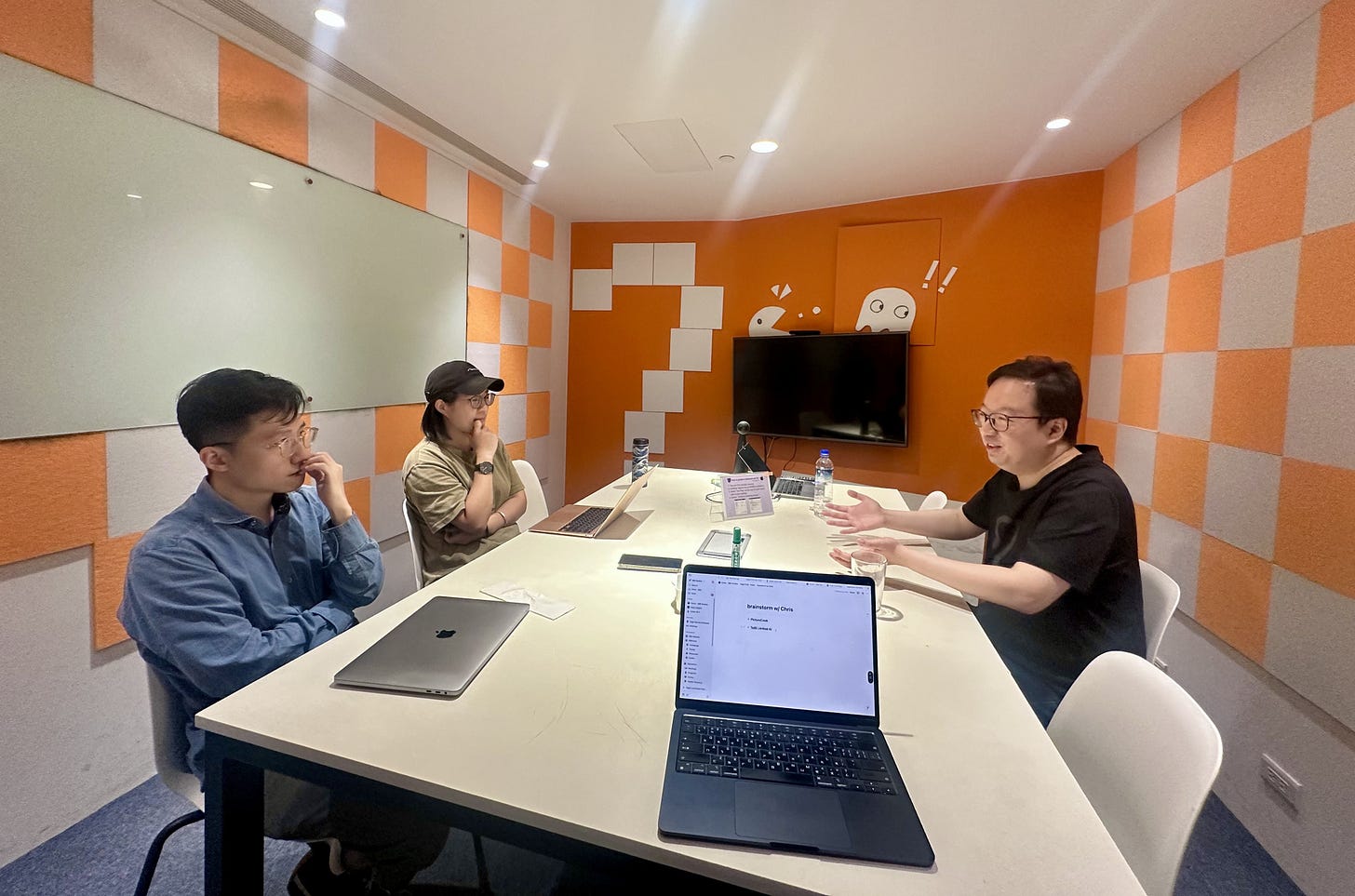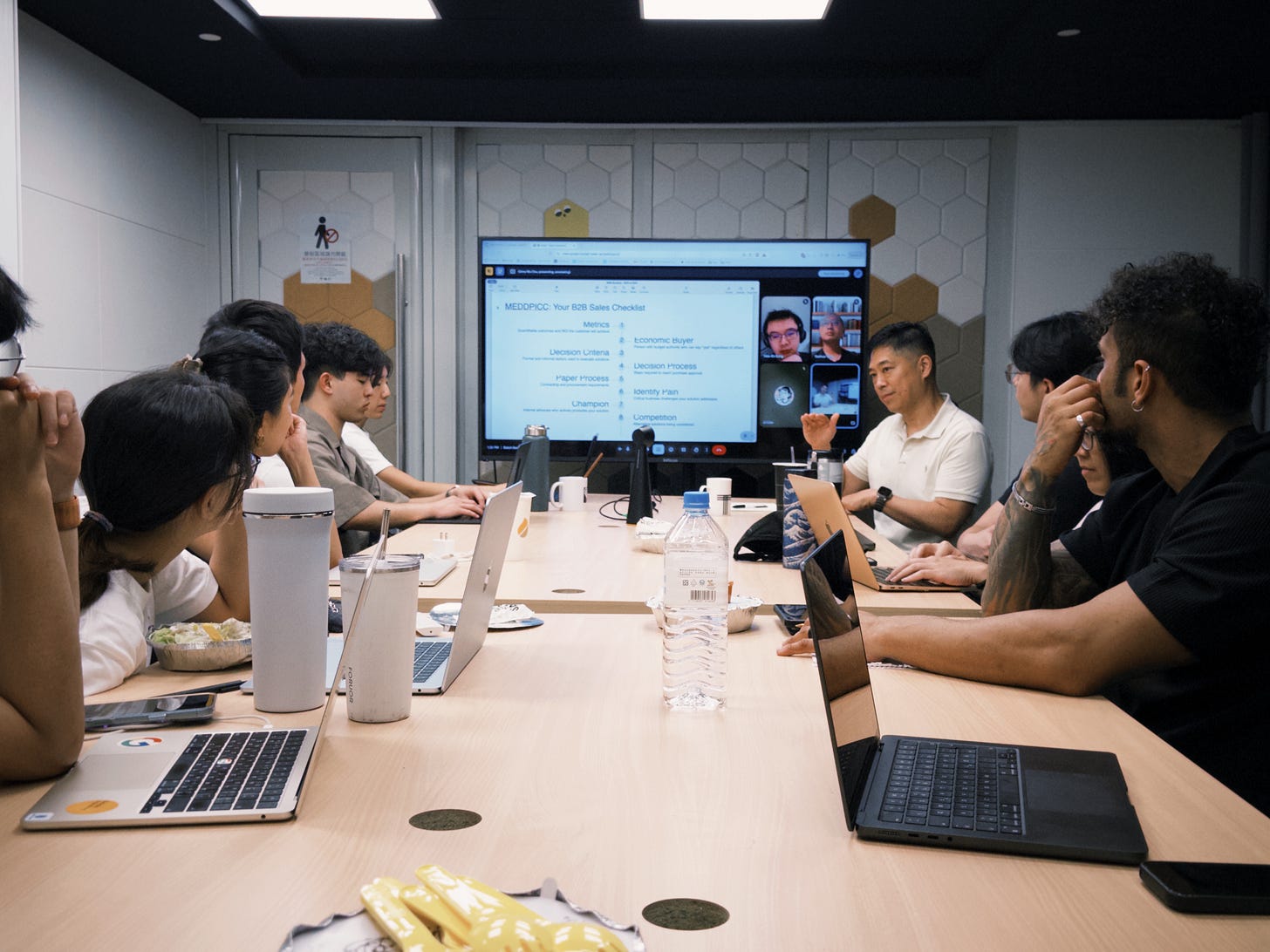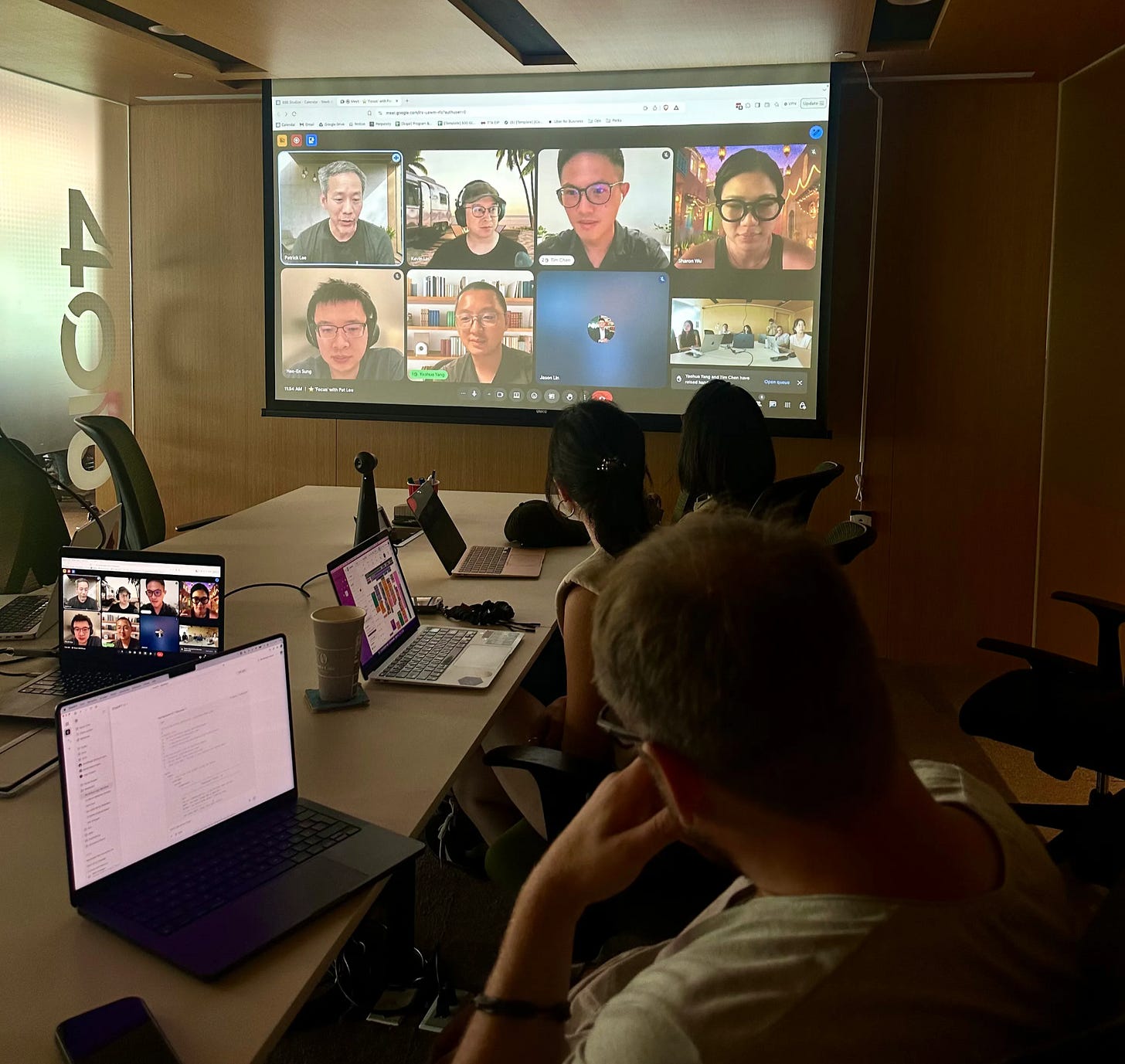Hey guys, Carter here again!
Last month, we kicked off our summer batch of ikigai Launchpad, our accelerator in Taipei where we fund, mentor, and support founders of early-stage startups.
This is our second ever batch of ikigai Launchpad, and we’re super excited to share what’s been cooking. I wanted to give you guys a quick behind-the-scenes look into the first few weeks of the program.
Enjoy!
Day 1: Welcoming the Founders!
Everyone piled into a conference room in Taipei Tech Arena (the home of 886 Studios & our ikigai Launchpad accelerator), where we - the 886 Studios team, partners, and the batch founders - finally gathered together for the first time.
It kicked off with an introduction from the batch partners, Kai & Kevin, sharing the story behind 886 Studios and why they decided to build ikigai Launchpad. Randy and Jason, partners at Lifelike Capital (the partner fund for ikigai), popped in via the air to say hello and welcome the batch!
This was followed by a short orientation led by Ginny, our program mastermind, where she set expectations and gave a quick overview of what the next 10 weeks would look like. It ended with Freya, our GM, sharing a personal anecdote and displaying her amazing ability of connecting things and weaving it into an inspiring story. This one was about broken glass at a bar she visited. The bar kept the glasses from past accidents and put it on display, not to hide the mistakes but to show they were part of the story. She tied it back to startups, reminding us that painful moments are often what make the journey meaningful.
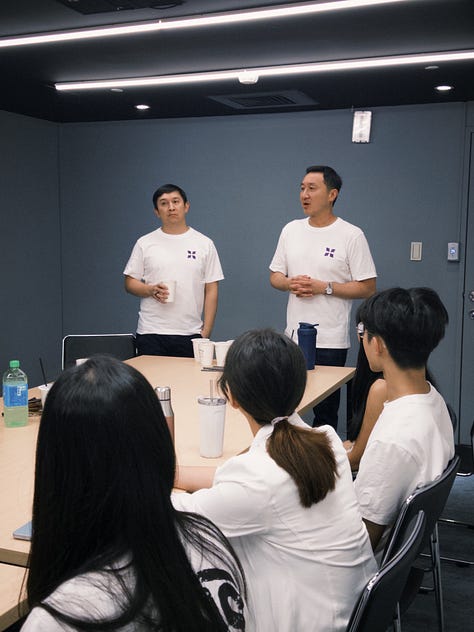
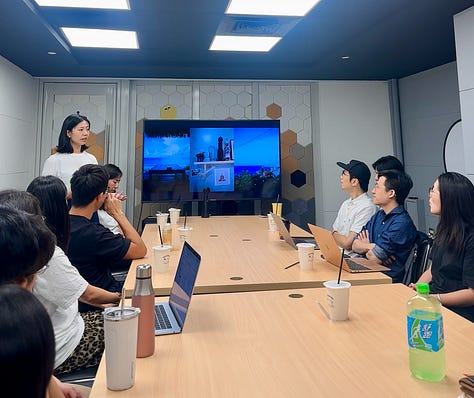
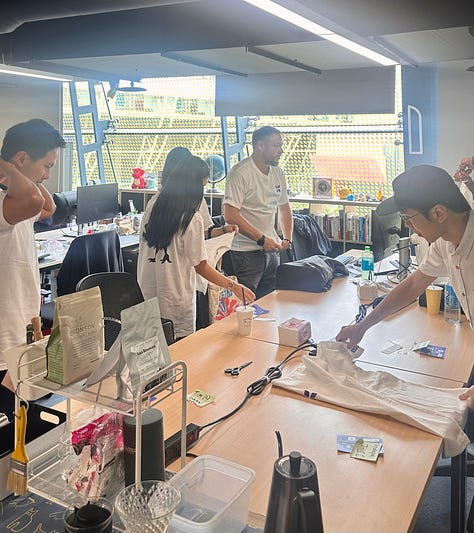
Next up was the welcome lunch, where we brought together alumni, partners, and other startups in our community to meet the new batch and swap stories about what everyone’s building.
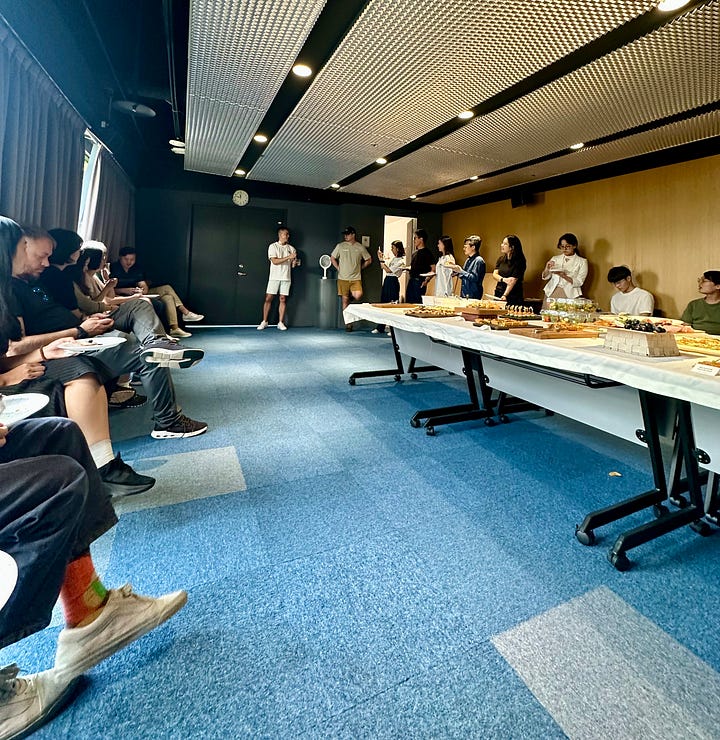
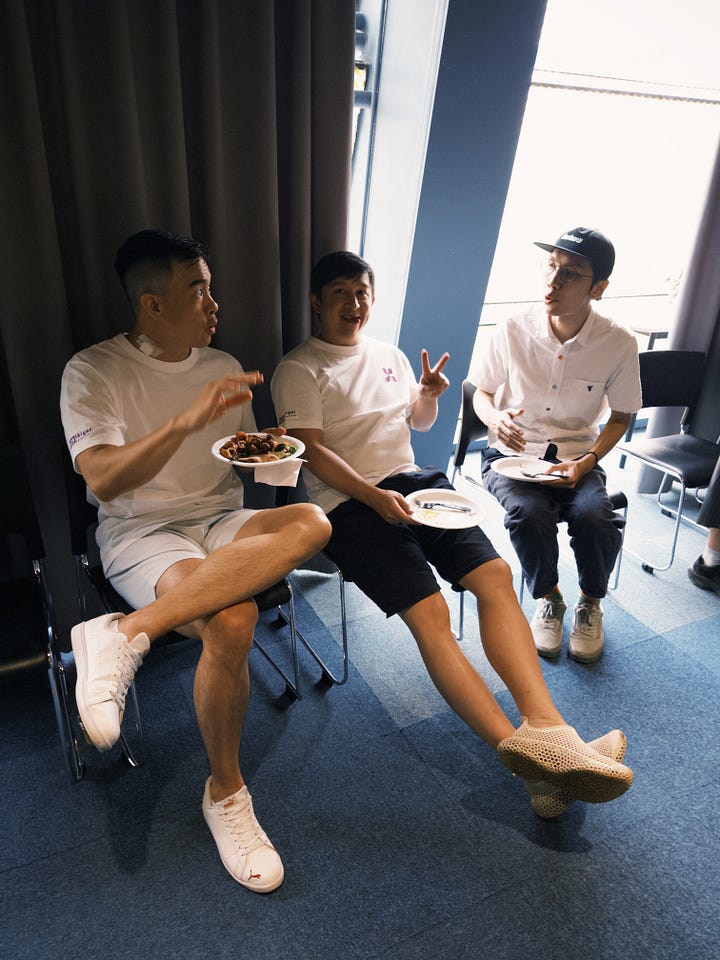
Batch Retreat
One of the biggest benefits of joining ikigai, or any accelerator for that matter, is your batchmates. These are your peers for the program. The people you’ll be building alongside and leaning on for support, sharing ideas with, inspiring, and pushing each other through the long days.
To help everyone settle in and connect, we took the entire batch on a retreat to Yilan, often thought of as Taipei’s backyard, located on the northeast coast of Taiwan. Founders, partners, and the 886 Studios team all squeezed into a bus for a quick getaway from the city. We hiked to a waterfall, ate seafood, networked with capybaras, and played poker late into the night (fun fact: i won LOL. Sorry, I just had to include this).
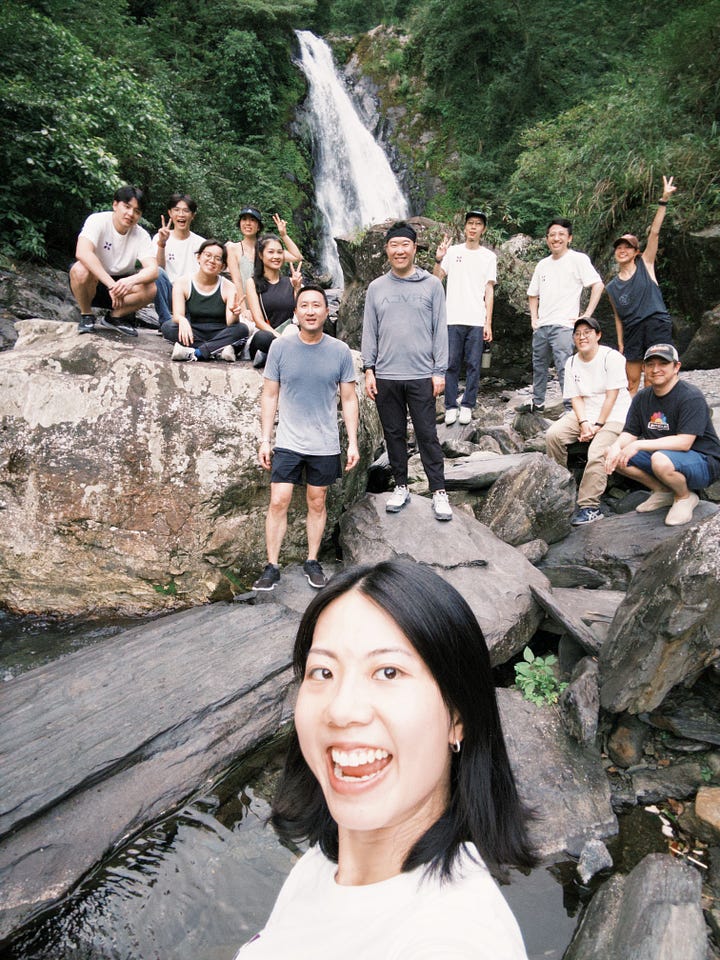
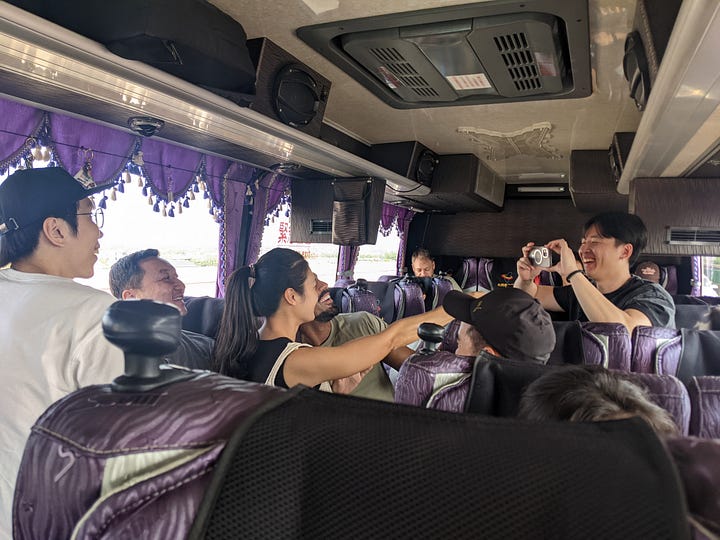
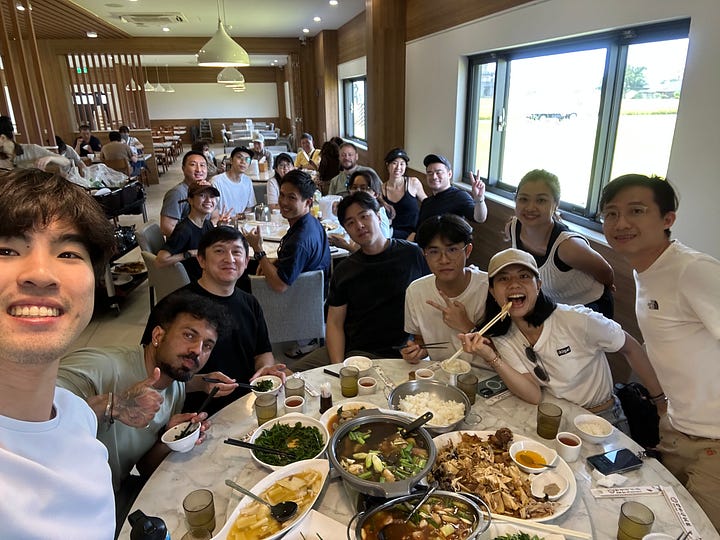
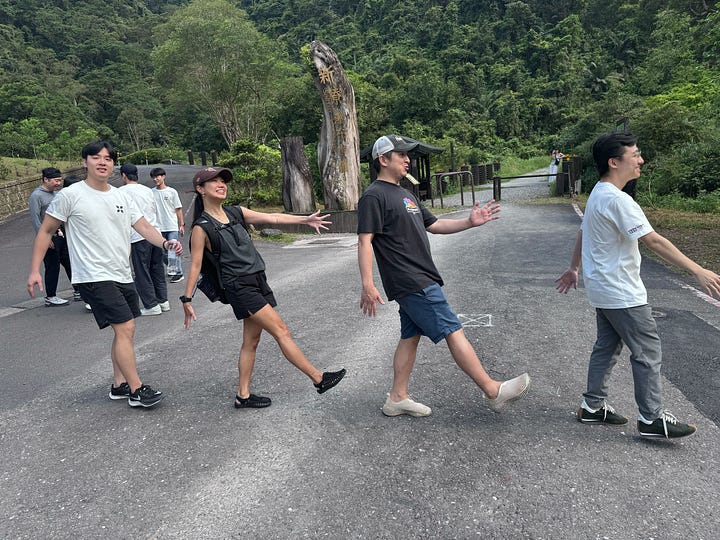
Additionally, we were joined by Chris Wang (co-founder of Playdom, Thundercore, and an 886 Studios partner) and our guest mentor, Lyle Fong (co-founder of Lithium and Gamers.com) where they took part in a fireside chat alongside Kevin & Kai. They shared about their failures, their struggles, and the kind of stories you wouldn't normally read in TechCrunch. Failure isn't something to run away from, as the partners shared, it's something to embrace.
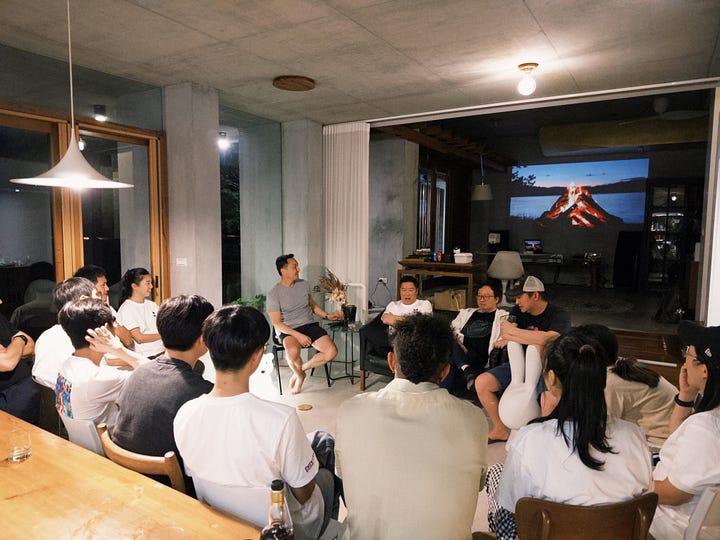
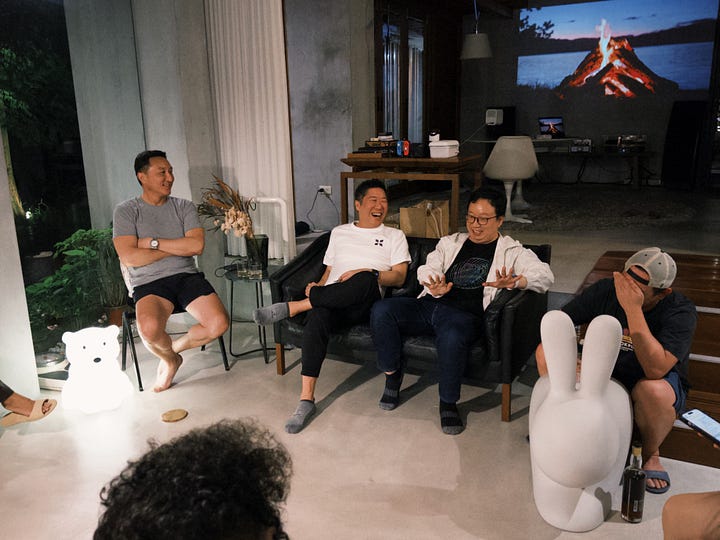
The next day, we explored a bit more of Yilan, then headed back to Taipei. The next ten weeks had officially begun. The beginning of the next 10 weeks has officially begun.
Time. To. Lock. In.
Workshops w/ the Partners
Throughout the 10 weeks, the batch gets to learn directly from each of the 886 Studios partners through workshops and talks on everything from how to find product market fit, to talking to users, to storytelling, and more.
We kicked things off with a “Mission & Vision” workshop led by Kevin. We run this early in the program because having a clear mission:
helps teams to align on shared goals and values and gives them the clarity to know what to focus on and prioritize.
creates consistency across your brand & marketing. It gives you a clear narrative - why your company exists and where you’re going.
acts as a guiding hand for decisions, which is especially important when things inevitably get tough. A mission reminds you why you're doing this in the first place. It’s fuel.
Chris followed with product feedback sessions. If I could summarize his advice in to a few points it’d be:
release the app to the public as fast as possible so you can get feedback as fast as possible. then iterate on that.
track where users are dropping off. Is it the app store page? Onboarding page? A specific page of the sign-up flow? Your goal should be to decrease friction as much as possible.
optimize your App Store page. That’s often the page where you’ll lose the most potential users. Make it easy to search and easy to understand.
additional tip: add a daily bonus. It’s one of the simplest ways to drive retention. The points or tokens don’t even need to mean anything significant.
Later in the week, the batch sat down with Jacob Hsu.
Jacob is a serial founder who scaled Symbio to $750M, led 23,000 engineers worldwide, and later became CEO of Catalyte, a company focused on unlocking overlooked tech talent. He’s now a Partner at 886 Studios and runs a venture studio in Maryland.
Over lunch, Jacob shared his career journey, thoughts on founder mindset, and lessons from building in B2B vs B2C.
Here were of some the key takeaways from his talk:
relationships are long-term leverage. Earlier in Jake’s career, he committed to meeting one new person a week for a year, without any agenda. This could be anyone from his taxi driver to someone who worked in his office building. That simple habit led to career-defining friends, business partners, and deals.
one creative advantage is remixing, aka, borrowing proven concepts or business models from other markets and adapting them to. You don’t always need to invent everything from scratch. Execution and fit matter more than originality.
in B2B, you're not only selling a product, you’re selling a transformation that must be justified to multiple stakeholders with different incentives. Success depends on understanding an organization’s internal politics, building champions (people who can advocate for your product), and proving ROI with numbers.
Weekly Mentor Office Hours
Every week, founders sit down for mentor office hours with Kai and Kevin. It’s dedicated time for hands-on advice and support where they work through product questions, strategy, and any challenges or roadblocks they’re facing.
I won’t spill any info from these top-secret meetings, but here’s a picture below.
Talks from Guest Speakers
We invited Jenny Hsu, a former Wall Street Journal journalist and PR manager at Alibaba, where she helped lead global communications and shape the company’s media strategy. She is now a communications consultant, angel investor, and a guest mentor at ikigai Launchpad. During this initial talk, Jenny and her partner, Annie Hsieh (founder of Edge of Impossible) shared insights on how to become a more persuasive and confident communicator.
Here are some of the things we learned:
the most powerful persuasion tool is a story. Stanford Research found that memorable stories increase memorability by 22x.
our physical state has a huge impact on our “aura” and delivery. Leveraging a routine like CALM (Calm, Anchor, Visualize, Activate), before a pitch, board meeting, etc, can actively prime our bodies and mind which can improve confidence, which in effect will improve our persuasive power.
while facts are important, truly connecting with people comes from being authentic. Sharing your "why" and being vulnerable can create a strong emotional bond, making your audience, or whoever you’re speaking with, feel like they're part of your journey, not just listening to a polished presentation.
We also invited Patrick Lee, the co-founder and ex-CEO of Rotten Tomatoes, a leading site for movie and TV show reviews, and now founder of Fanverse. He spoke to our founders about focus, (which, if you’ve made it this far in the newsletter, thank you for demonstrating!).
Here are some of the things he shared:
the most effective marketing is achieved by building a great product that people naturally want to share with others. With Rotten Tomatoes, the "Certified Fresh" status, the film studios themselves would heavily promote this status in their advertising, trailers, and DVD covers, essentially marketing Rotten Tomatoes for free.
if the product isn’t catching on, pivot. This means changing something fundamental, whether it’s the main feature, who you’re selling to, or the whole idea. Trying to make an unfocused idea grow will likely lead to failure, as we’ve seen with WeWork and Quibi. These were companies that crashed after expanding too fast and into too many directions.
focus is one of the most critical traits for a startup. As Pat puts it, sunlight alone won’t start a fire, but when concentrated through a magnifying glass, it can generate enough heat for a spark to ignite, or in a startup’s case, product-market fit.
And that’s it for now! We’re super excited to have kicked off our summer batch of ikigai Launchpad. Stay tuned to hear more about our batch teams and where they’re going.
See you next time!
- Carter
Follow us on: Instagram, X, Threads, and LinkedIn.
Also, come hang out with us on Discord!







